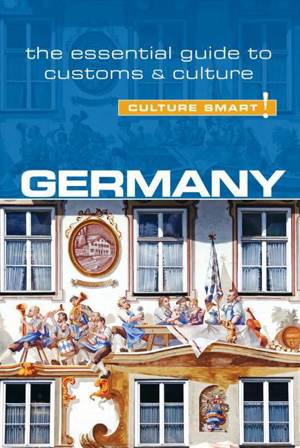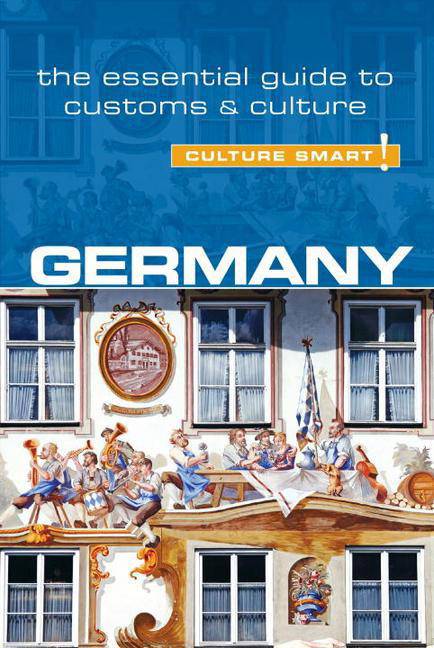
- Retrait gratuit dans votre magasin Club
- 7.000.000 titres dans notre catalogue
- Payer en toute sécurité
- Toujours un magasin près de chez vous
- Retrait gratuit dans votre magasin Club
- 7.000.0000 titres dans notre catalogue
- Payer en toute sécurité
- Toujours un magasin près de chez vous
Germany - Culture Smart!, Volume 59
The Essential Guide to Customs & Culture
Barry Tomalin, Culture Smart!
11,45 €
+ 22 points
Description
With the FIFA World Cup in its pocket Germany is feeling its social, political, and economic power once again. After organizing a successful World Cup in 2006 and winning it against Argentina in Brazil in 2014, Germany sees a note of confidence, even triumphalism, permeating the country. As a European leader committed to the success of the EU and the Eurozone, Germany is a leading driver of European affairs. It emerged from the recession of 2008 as the strongest economic power in Europe, and German manufacturing, product brand value, and exports are going from strength to strength. What are the implications of this new world confidence for German society itself? In the last few years we have seen East and West Germany come together socially and achieve a greater degree of economic balance as a long-term result of German re-unification. At the same time German society itself is internationalizing, with increased immigration and the adaptation of age-old values and attitudes to a multinational, multicultural era. Traditional attitudes of formality and rigid protocol in business are softening as German business globalizes. This new, updated edition of Culture Smart! Germany examines these changes. It explains how German traditional values and working methods are adapting to take advantage of international opportunities and global society while maintaining the commitment to quality, organization, and time that marks out German business life. It shows how the traditional differences between Germany's regions are lessening, enabling society to come together and better absorb new immigrants, and above all how Germans are losing the fear and guilt associated with their twentieth-century wars and finding a new voice on the international stage.
Spécifications
Parties prenantes
- Auteur(s) :
- Editeur:
Contenu
- Nombre de pages :
- 168
- Langue:
- Anglais
- Collection :
Caractéristiques
- EAN:
- 9781857337112
- Date de parution :
- 28-07-15
- Format:
- Livre broché
- Format numérique:
- Trade paperback (VS)
- Dimensions :
- 114 mm x 170 mm
- Poids :
- 136 g

Les avis
Nous publions uniquement les avis qui respectent les conditions requises. Consultez nos conditions pour les avis.






